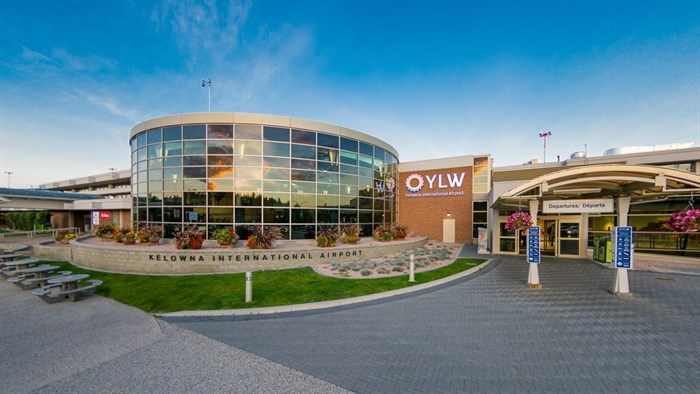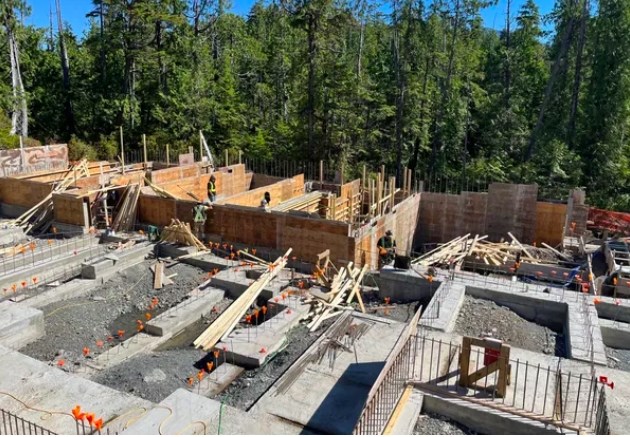
Image Credit: Pexels/Gustavo Fring
November 28, 2022 - 6:30 AM
Local governments have limited ability to raise money to run their towns and cities.
So limited are they that, in January, a memorandum of understanding was signed between the province and municipalities to work towards a better funding model for local governments.
Not likely to be on that agenda is something most municipalities have never even thought about: incorporating their own businesses to generate revenue.
That’s something Westbank First Nation has been doing for years with things like a construction company and forestry company but it’s not on the minds of municipal politicians.
“It’s not something we’ve discussed doing, that I’m aware of,” Coun. Luke Sack, told iNFOnews.ca. He’s Kelowna’s longest-serving city councillor and was just re-elected to his fifth term.
“We have to be very careful as a municipality not to be competing with bona fide commercial industry,” he added. “We have to be careful to make sure we’re not subsidizing someone in favour of another.”
That's not how Ntityix Development Corporation operates on behalf of Westbank First Nation.
WESTBANK FIRST NATION
“WIBCO (the band’s construction company) has got to be lean and mean and skinny, just like everyone else,” Ntityix’s CEO Mic Werstuik told iNFOnews.ca.
The construction company bids on jobs inside or outside band lands and has no guarantee of getting band-funded jobs.
Ntityix was launched in the 1970s as an incorporated company like any other in B.C.
It has a portfolio of companies with interests in residential and commercial real estate, such as shopping malls along Highway 97, and professional services along with its construction and forestry companies.
Westbank First Nation holds the shares in trust with the chief and council, along with some independents, sitting on the board of directors, Werstuik explained.
As a separate corporation the board can decide to plow profits from any given year back into the company or pay dividends to the band, which it has done.
That money has been used to provide services to the members, like recreation or health and dental benefits. It hasn’t gone to subsidize taxes as the revenue stream can’t be guaranteed from year to year.
It’s not a model practiced by municipalities in B.C. despite the fact that they have many operations that could be a potential source of revenue.
CITY OF KELOWNA
“It isn’t anything I’ve ever looked into in any great detail,” Kelowna City Clerk Stephen Fleming told iNFonews.ca when asked if cities could legally incorporate companies. “Council has never come and said: ‘Can we operate such and such a company?’”
Local governments can legally incorporate companies but only with the approval of the province, the Ministry of Municipal Affairs said in an email.
Instead of incorporating, cities have adopted self-funded utilities system to collect fees to operate things like water, sewer and landfill systems.
While those are billed on the annual tax statements, they are separate from the property tax so, an increase in utility fees is separate from the tax rate.
Kelowna International Airport is operated in a similar manner but its funding comes from fees charged to travellers so those don’t show up on tax notices.

Kelowna International Airport is a city-owned business but not a separate corporation.
Image Credit: Kelowna International Airport
The City of Kelowna generates close to $100 million a year in user fees that go to fund those services.
That includes $24 million from the Glenmore Landfill, $19 million from sewer and $18 million from water.
Kelowna Airport raised $22 million in 2021 through fees charged to travellers and airlines, along with parking and lease fees.
That number increased to about $30 million by the end of September as the airport recovered from the COVID slowdown.
Other self-funded utilities include the cemetery, parking and recreational fees.
The city also collects significant dollars from developers for every housing unit they build. That helps cover the cost of new roads, parks, etc.
Kelowna once owned its own electrical utility and sold it to FortisBC. More than $100 million in proceeds from that sale still sit on the city’s books as a “legacy” fund.
It has has a public-private partnership with GSL Holdings that built and operates its Prospera Place arena.
Despite what Stack says about being careful not to compete with local businesses — the City of Kelowna does, in fact, actually do that.
The City of Kelowna owns a gravel pit in West Kelowna.
While that’s used mostly by the city, that means it’s not buying gravel from other sources, but the city has no apparent interest in making a profit from it.
Each year the City of Kelowna offers trees and back-yard composters at cost. While small in numbers, that does take business away from nurseries and hardware stores.
Even things like the cemetery and recreational facilities have private competitors.
The City of Kelowna was also downright entrepreneurial in helping to secure data.
“We have taken an entrepreneurial approach to things like putting in dark fiber to connect the city and we are willing to lease that space, but we haven’t set it up as a separate corporation,” Stack said. “We’ve been doing strategic investments where we buy property and advance the official community plan and, hopefully turn that property over with a profit that goes back into a reserve to do more of it.”
READ MORE: Kelowna is reaping rewards of dark fibre investment running under city streets
There are only a couple examples of other municipalities in B.C. that have set up their own companies.
NORTH VANCOUVER
In 2003, the City of North Vancouver incorporated the Lonsdale Energy Corporation to provide “dependable, clean, and competitively-priced energy to residential and commercial buildings in the Lonsdale area,” according to the corporation's website.
The project includes a network of underground piping and mini-plants to circulate hot water for heat.
At that time, the city determined that the best way to provide the service was to go into a partnership with BCG Systems.
The city funds the in-street distribution components, regulatory authority, and rate setting while BCG pays for the boilers, pumps, controls, etc. as well as the day-to-day operating, maintenance, and customer care services," the website says.
To make the agreement work the city had to incorporate the company so it could sign an operating contract of more than five years.
“A corporation structure facilitates long term planning and provides flexibility such as potential profitable sale of the firm in future decades should the city so desire,” states a 2003 report to city council.
The council is the sole director of the company and three senior managers serve as the board of directors.
TOFINO
A more recent example is the Tofino Housing Corporation, set up in 2017.

Construction is underway on this affordable housing project in Tofino.
Image Credit: Submitted/Tofino Housing Corporation
It was created to provide affordable housing for workers and low income residents. It has 14 homes finished and occupied and another 72 under construction.
READ MORE: Small Island community might have answers to Kamloops, Okanagan housing crisis
A housing needs assessment in 2015-16 showed the need for such housing so the District of Tofino called for proposals to build housing on city-owned land. They didn’t get suitable applications so decided to set up their own corporation.
That allowed them to hire a manager who set up a partnership with Catalyst Community Developments Society out of Vancouver to build and manage the housing.
“There are a few reasons why you would do a corporation,” Ian Scott, interim executive director of the company, told iNFOnews.ca “One is to protect your municipality from certain financial liabilities by being a separate entity and developing and owning housing is a fairly high cost and more risky proposition.”
Borrowing money is also different under a corporation.
For one thing, mortgages are generally 25-30 years, longer than borrowing for water or sewer utilities.
For another, municipalities have borrowing limits so borrowing for housing would affect Tofino’s ability to borrow for other things.
And, there is also no need to go to referendum to raise money.
Tofino has put about $1 million into the current housing project in cash and land value. Most of the cash came from collecting hotel room taxes for the last few years.
Under the existing bylaw, Tofino could technically receive dividends if the corporation ever turned a profit.
Scott says he’s looking at changing that so any profit – which would be, at least, a decade off – would go back into the housing corporation.
Whistler also has its own housing corporation that’s trying to make sure 75% of employees can be housed locally.
Kelowna has considered doing some strategic investments on the housing front, Stack said. It didn’t because there’s a strong network of non-profits providing affordable housing and the city didn’t want to get into the business of managing homes.
“Once you get into housing, that’s a very big commitment by the city to manage it,” Stack said. “The city doesn’t want to be in the situation where it's evicting a single parent for not paying her rent. It puts the city in a very untenable position because you want to help people out and the last thing you want to be viewed as is a landlord bringing grief to a household.”
Instead, the city has provided land for affordable housing that’s built and managed by others.
THE DOWN SIDE
Of course, despite all the protections offered to taxpayers by having separately incorporated businesses, there’s always the risk of taxpayers being on the hook if things go sideways.
In 2011, Westbank First Nation announced it was going into partnership with an investment firm to build the Lake Okanagan Wellness Centre with promises that the band would have no financial obligations.
That was to be a band-owned private hospital on band land.
But, in the process, the partners took out a mortgage on those lands and, when the whole project fell apart five or six years later, the band had to pay $8 million to get their land back.
READ MORE: Westbank First Nation counter-sues former private hospital partners
Earlier this year, Westbank First Nation Chief Christopher Derickson resigned over the controversial sale of 147 acres of band-owned land near Peachland. An employee sold the land for far less than it was worth.
While those may not be examples of corporations that went awry, they do serve as a cautionary note that any business venture comes with a certain amount of risk and taxpayers need to be protected from those risks.
READ MORE: Westbank First Nation chief resigns
To contact a reporter for this story, email Rob Munro or call 250-808-0143 or email the editor. You can also submit photos, videos or news tips to the newsroom and be entered to win a monthly prize draw.
We welcome your comments and opinions on our stories but play nice. We won't censor or delete comments unless they contain off-topic statements or links, unnecessary vulgarity, false facts, spam or obviously fake profiles. If you have any concerns about what you see in comments, email the editor in the link above.
News from © iNFOnews, 2022